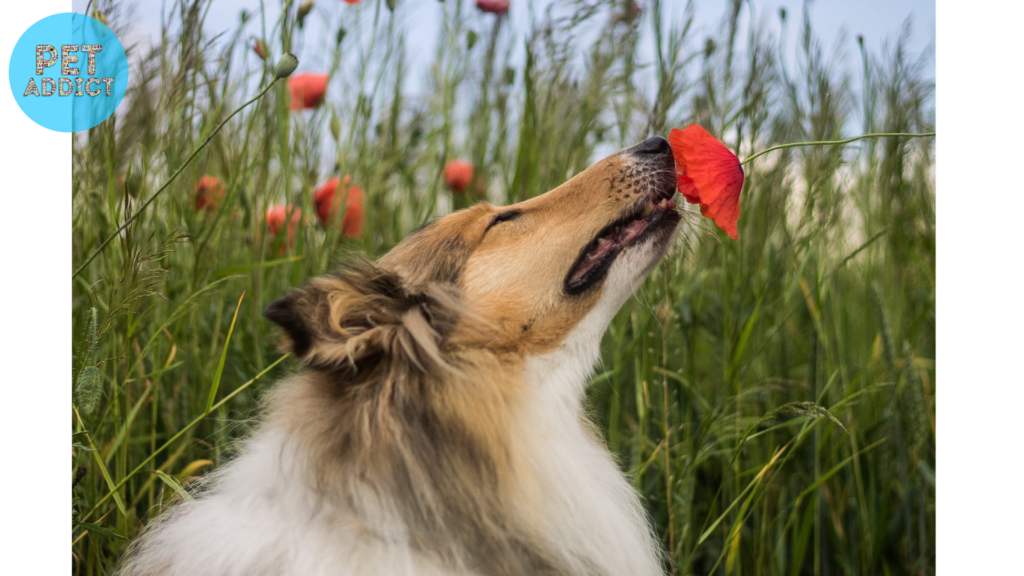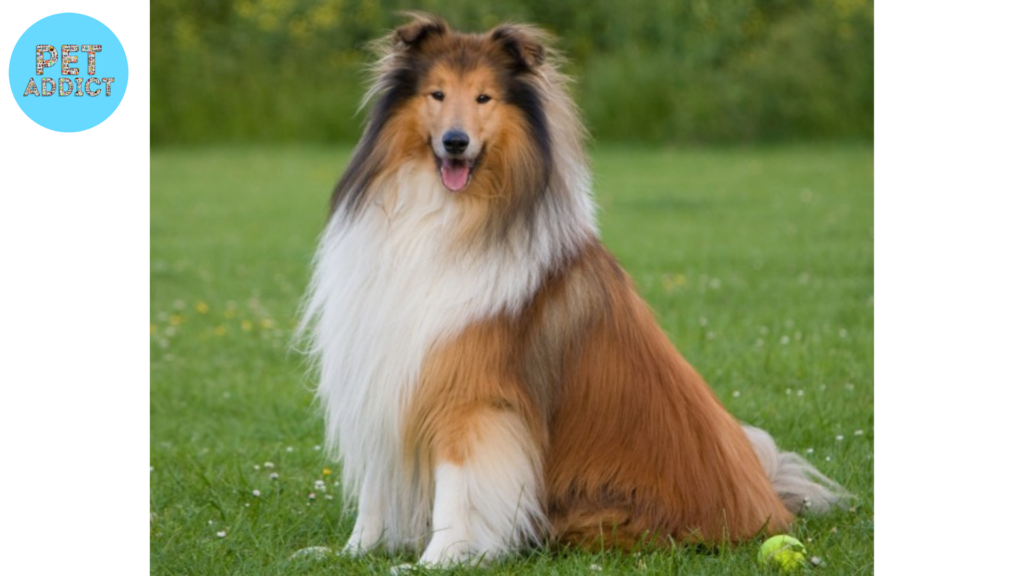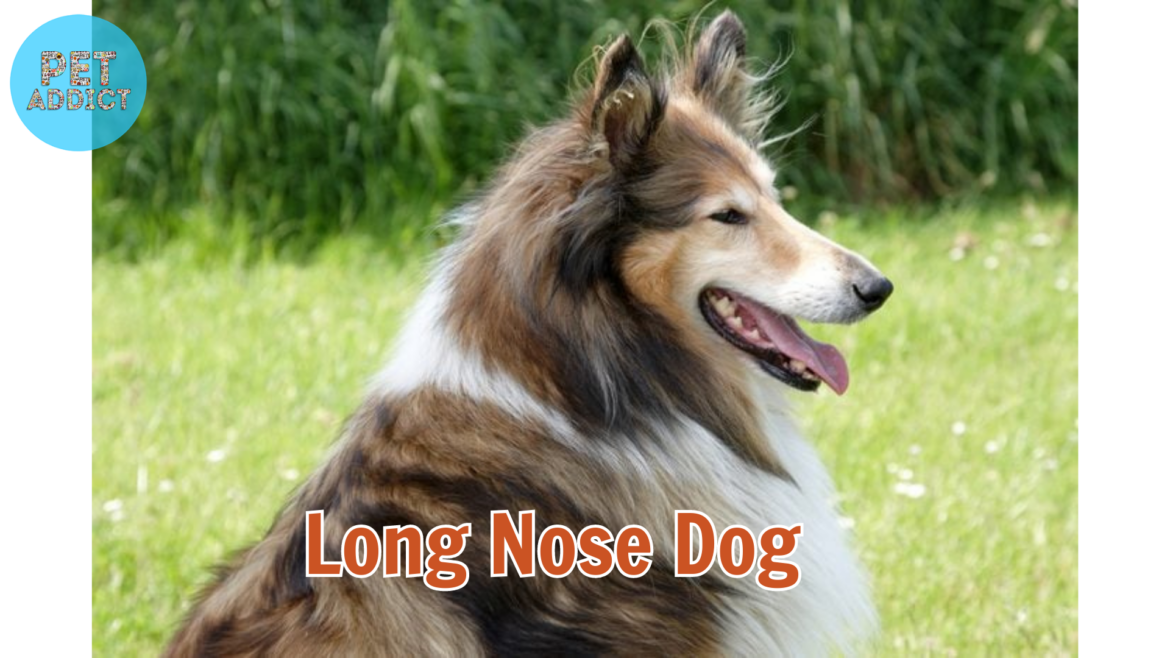Introduction
Long-nosed dogs, a distinctive group of canine companions, have captured the hearts of dog enthusiasts worldwide. These fascinating creatures boast unique characteristics and have played various roles throughout history, from hunting and guarding to being beloved family pets. In this article, we’ll delve into the world of long-nosed dogs, exploring their history, traits, care needs, and more.
PetAddict.net – The best place where you can find everything about your pet!
History and Evolution
Long-nosed dogs have a rich historical background that dates back centuries. Ancient civilizations valued these dogs for their exceptional tracking and hunting abilities. Some of the earliest breeds with long noses include the Greyhound, Afghan Hound, and Saluki, each bred for their incredible speed and keen senses.

The elongated snouts of these dogs aren’t merely an aesthetic feature; they serve a purpose. Their extended nasal passages enable them to detect scents more effectively, making them excellent trackers and hunters. Over time, these dogs were selectively bred to enhance their physical attributes, leading to the various breeds we know today.
Characteristics
Long-nosed dogs exhibit a range of physical features and behavioral traits. Physically, their slender bodies and elongated muzzles make them stand out from other breeds. Some dogs, like the Afghan Hound, flaunt a luxurious coat, while others, like the Greyhound, boast a sleek and streamlined appearance.

In terms of behavior, long-nosed dogs are often independent and intelligent. Their hunting instincts may lead them to chase after smaller animals, so early training and socialization are essential to managing these tendencies.
Popular Breeds with Long Noses

Several breeds are recognized for their long snouts and distinctive appearances. The Greyhound, known for its lightning-fast speed, is a classic example. The Afghan Hound’s regal presence and flowing coat have earned it a place among royalty throughout history. The Dachshund, with its short legs and long body, has charmed its way into the hearts of families worldwide. Additionally, the Collie, famous for its loyalty and herding abilities, also falls into the category of long-nosed dogs.
Health Considerations
While long-nosed dogs are undeniably captivating, their unique physical features can lead to some health concerns. Due to their elongated muzzles, certain breeds may be prone to respiratory issues, particularly in extreme weather conditions. It’s crucial for owners to be aware of these potential problems and work closely with veterinarians to manage and prevent them.
Furthermore, dental care is essential for long-nosed dogs, as their teeth may be crowded within their narrow mouths. Regular dental check-ups and appropriate chew toys can help maintain their oral health.
Popular Culture

Long-nosed dogs have made their mark in various forms of entertainment. From Lassie, the heroic Collie, to Scooby-Doo, the beloved Great Dane, these dogs have become iconic characters in movies and TV shows. Their intelligence, loyalty, and ability to communicate non-verbally have made them natural stars on the screen.
Long-Nosed Dogs as Working Partners
The impressive abilities of long-nosed dogs extend beyond the entertainment world. Their exceptional tracking and scent-detection skills have been instrumental in search and rescue missions, helping locate missing individuals or survivors in disasters. Additionally, some breeds have excelled in roles as therapy dogs, offering comfort and support to those in need.
Caring

Caring for dogs involves more than just meeting their basic needs. Proper nutrition tailored to their breed and activity level is essential to keep them healthy and thriving. Regular exercise is vital, as it not only maintains their physical health but also keeps their minds stimulated. Enrichment activities and interactive toys can help prevent boredom and destructive behaviors.
Training Techniques
Training dogs can be both rewarding and challenging. Due to their independent nature, patience and positive reinforcement are key to successful training sessions. Focusing on reward-based methods will encourage them to learn and follow commands effectively.
Long-Nosed Dogs as Family Pets

Long-nosed dogs can make wonderful additions to families. Their gentle and loving nature can make them excellent companions for children and other pets. However, potential owners should consider the breed’s energy level and grooming needs to ensure the dog’s compatibility with their lifestyle.
Choosing the Right Long-Nosed Dog for You
When deciding to bring a long-nosed dog into your home, it’s essential to consider various factors, such as your living situation, activity level, and the dog’s specific needs. Responsible pet ownership includes researching reputable breeders or considering adoption from shelters.
Myths and Misconceptions

As with any popular breed, long-nosed dogs are sometimes subject to myths and misconceptions. It’s essential to separate fact from fiction and understand the true nature of these incredible animals. For example, while some people may believe that they are aggressive, they are generally no more aggressive than other breeds when properly trained and socialized.
The Bond Between Humans and Long-Nosed Dogs
The connection between humans and dogs is a powerful and enduring one. Their loyalty and unwavering companionship create deep bonds that last a lifetime. These dogs become true members of the family, offering love and support to their human counterparts.
Challenges of Owning Long-Nosed Dogs

Potential long-nosed dog owners should be aware of the challenges that come with this breed. Long-nosed dogs may have strong prey drives, leading them to chase after smaller animals. Additionally, their elongated noses can be sensitive, requiring careful handling and protection from potential injuries.
Addressing the Special Needs of Long-Nosed Dogs
To ensure the well-being of long-nosed dogs, owners should take specific precautions and create a safe environment that caters to their unique needs. Properly securing fences and understanding their limitations during hot or cold weather are essential aspects of responsible ownership.
Conclusion
In conclusion, long-nosed dogs are captivating creatures with a storied past and extraordinary qualities. Whether they’re working partners, beloved family pets, or icons in popular culture, their impact on human society is undeniable. If you’re considering welcoming a long-nosed dog into your life, remember to provide them with the love, care, and attention they deserve, and you’ll be rewarded with a lifelong companion.
FAQs
- Are long-nosed dogs suitable for families with children?
- Yes, many long-nosed breeds, like the Collie and Greyhound, are gentle and great with kids. However, supervision and early socialization are crucial.
- Do long-nosed dogs require a lot of exercise?
- Yes, most of them have high energy levels and need regular exercise to stay healthy and happy.
- Can I adopt a long-nosed dog from a shelter?
- Yes, some shelters and rescue organizations have some available for adoption. Consider adopting to give a loving home to a dog in need.
- Do long-nosed dogs shed a lot?
- Shedding varies among breeds, but many dogs do shed, especially during seasonal changes.
- How can I train a long-nosed dog effectively?
- Positive reinforcement techniques work well with long-nosed dogs. Reward-based training helps motivate them to learn and obey commands.




